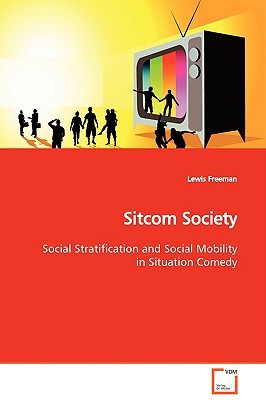
- We will send in 10–14 business days.
- Author: Lewis Freeman
- Publisher: VDM Verlag
- Year: 2008
- Pages: 244
- ISBN-10: 3639012844
- ISBN-13: 9783639012842
- Format: 15.2 x 22.9 x 1.3 cm, minkšti viršeliai
- Language: English
- SAVE -10% with code: EXTRA
Sitcom Society Social Stratification and Social Mobility in Situation Comedy (e-book) (used book) | bookbook.eu
Reviews
Description
This book examines the symbolic representation of social class and social mobility in situation comedy from a content analysis of 13 sitcoms, including Cheers, The Cosby Show, Roseanne, Seinfeld, and The Simpsons. Social structure and processes were conspicuously, and characters' social positions were static, regardless of changes in their finances, educational attainment, or employment. The complicated social structure of sitcom society facilitated humorous situations and the representation of public issues as characters' personal troubles. Foundational values of American culture - individualism and success based on merit - were present in the ways characters handled financial and occupational issues. The emphases on characters solving their own dilemmas, being resourceful, and being industrious are all indicative of the premium these sitcoms placed on individualism and meritocracy. The failure of an important genre on such a ubiquitous medium to challenge the causes, nature, and consequences of the American class structure seems largely an artifact of the structure and practices of the industry that produces American situation comedies.
EXTRA 10 % discount with code: EXTRA
The promotion ends in 23d.19:35:21
The discount code is valid when purchasing from 10 €. Discounts do not stack.
- Author: Lewis Freeman
- Publisher: VDM Verlag
- Year: 2008
- Pages: 244
- ISBN-10: 3639012844
- ISBN-13: 9783639012842
- Format: 15.2 x 22.9 x 1.3 cm, minkšti viršeliai
- Language: English English
This book examines the symbolic representation of social class and social mobility in situation comedy from a content analysis of 13 sitcoms, including Cheers, The Cosby Show, Roseanne, Seinfeld, and The Simpsons. Social structure and processes were conspicuously, and characters' social positions were static, regardless of changes in their finances, educational attainment, or employment. The complicated social structure of sitcom society facilitated humorous situations and the representation of public issues as characters' personal troubles. Foundational values of American culture - individualism and success based on merit - were present in the ways characters handled financial and occupational issues. The emphases on characters solving their own dilemmas, being resourceful, and being industrious are all indicative of the premium these sitcoms placed on individualism and meritocracy. The failure of an important genre on such a ubiquitous medium to challenge the causes, nature, and consequences of the American class structure seems largely an artifact of the structure and practices of the industry that produces American situation comedies.


Reviews